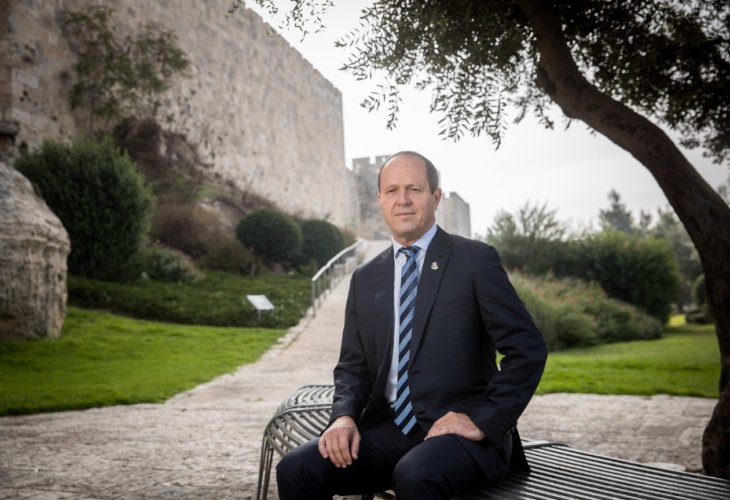"We Must Understand That Division and Fragmentation Are Not the Way"; Nir Barkat in an Interview
Why is Nir Barkat sure he's the right choice for Prime Minister after Benjamin Netanyahu? How did he manage a divided city for a decade? And what's the secret behind his monthly one-shekel salary? Bare-knuckle interview.
 Nir Barkat. (Photo: Yonatan Sindel/Flash90)
Nir Barkat. (Photo: Yonatan Sindel/Flash90)What will come after Benjamin Netanyahu's tenure in Likud? For now, this question has disappeared from the headlines, as Netanyahu proved his leadership with a significant victory over Gideon Sa'ar in the latest primaries. Officially, the topic is off the table, but behind the scenes, several individuals are positioning themselves as candidates to lead the country after Netanyahu.
One such contender is Nir Barkat, former Mayor of Jerusalem, known for his skill in uniting diverse communities. Now an active member of the Likud party, Barkat's name often appears in the news, prompting us to explore his perspectives.
The Tech Entrepreneur Turned Mayor
Let's start with industry knowledge — how can one technically manage a complex city with religious, secular, Arab, and Jewish populations, as well as affluent and underprivileged communities? How do you do it?
Barkat surprises by emphasizing "the unity of Israel." "This concept guided all my years as mayor," he explains. "I knew every decision had to be made within a broad consensus acceptable to both secular and religious communities, avoiding deep conflicts to enable the city and its neighborhoods to thrive."
Nir Barkat (age 60) was a tech entrepreneur and investor before politics. He was not born in Jerusalem but grew up there, joining the IDF's Paratroopers Brigade in 1977, reaching the rank of Major.
Barkat holds a bachelor's degree in computer science from Hebrew University and pursued business studies there as well. He co-founded BRM (named for Barkat, Rechavi, and Mann), noted for pioneering antivirus software facing the "Jerusalem" virus. Over the years, BRM nurtured other tech ventures, notably investing $400,000 in Check Point, which became a global leader in cybersecurity.
In the 2008 elections, Barkat stepped into politics and won 52% of the votes to become Jerusalem's mayor. “Originally, I didn’t see myself in public service,” he says, "but seeing Jerusalem’s management challenges drove me to act."
"No Place for Incitement"
In recent elections, we've seen heightened incitement, notably from Avigdor Lieberman. As someone knowing Lieberman, what’s your take on his break with the Haredi sector?
"I don't know his reasoning, but division and fragmentation aren't the right path. While they may garner short-term votes, unity is key to achieving broad solutions Israel needs.”
The secular media frequently raises claims about religious influence, especially in education. What’s your opinion, as a former mayor, on these claims?
"In Jerusalem, we hear both claims of religious coercion and secularization. Focused mutual respect and choice are vital."
With the controversy over public transport on Shabbat emerging, do you believe the status quo should remain?
"Yes, the societal compromises of status quo help different beliefs coexist. It requires us not to enforce but to agree when possible. For 70 years, we've coped with it, so we should continue."
Understanding Value
Despite his wealth, Barkat's one-shekel monthly salary as mayor, requested by himself, speaks volumes. “My father blessed us to pay high taxes, signifying success enough to work for a shekel a year. I followed his blessing throughout my decade as mayor, and continue as a Knesset member,” he vows.

